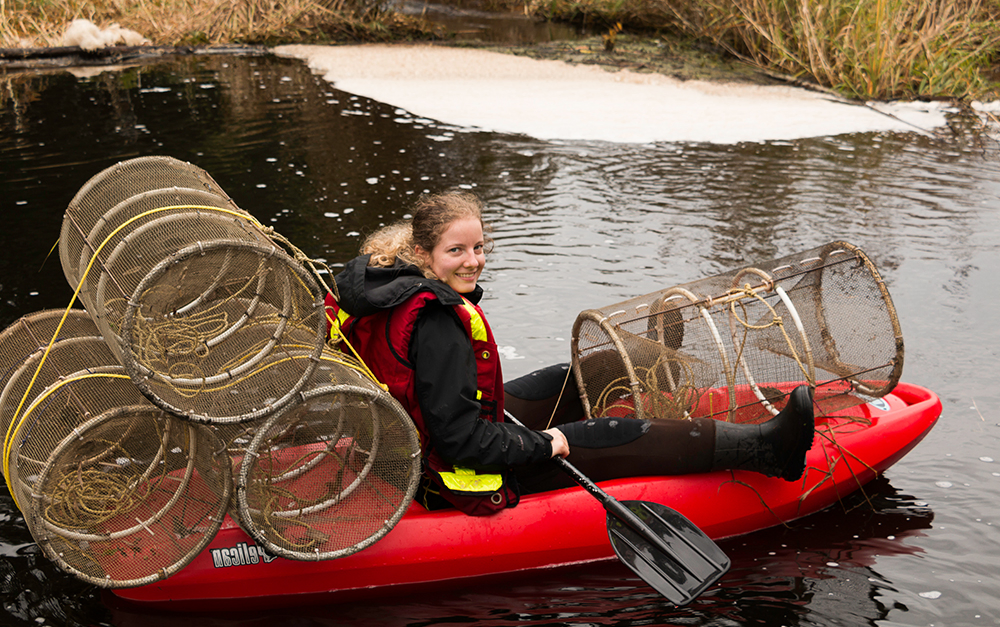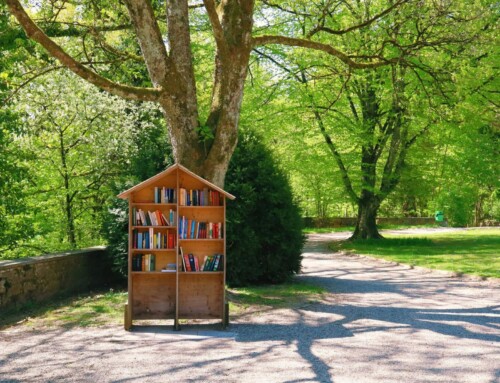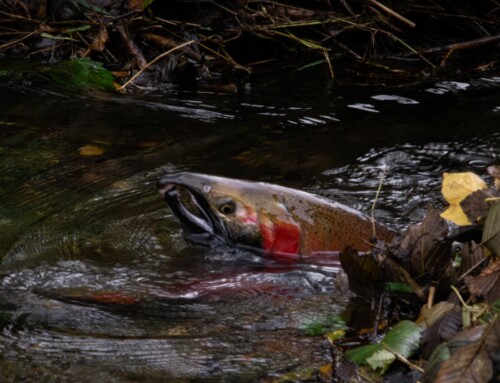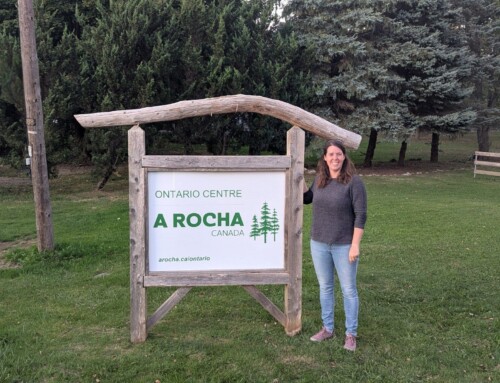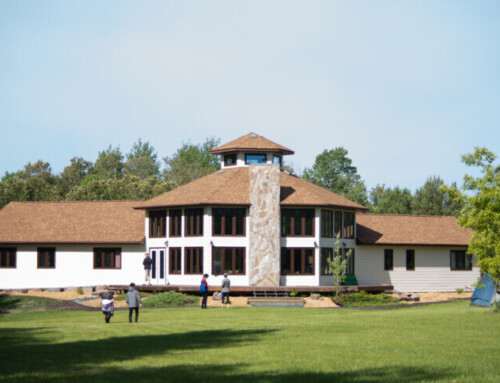Interns Reflect on the A Rocha Experience
Every three months a new group of young stewards immerse themselves in a creation care internship at A Rocha’s Brooksdale Environmental Centre in Surrey, BC. They live, learn, and work alongside the A Rocha team in Sustainable Agriculture, Environmental Education, Conservation and Hospitality. Interns participate in community life, receive quality teaching on a variety of topics related to environmental stewardship and Christian faith, as well as instruction and practical experience in their internship concentration area.
A Stream of Thought
“Getting to hold a dying salmon is the ultimate Canadian experience, ” said an A Rocha international volunteer as we stood on the banks of the Little Campbell River. For me, it was the perfect embodiment of the circle of life. Not just a song from a beloved Disney movie, but also a representation of the interdependency of all living species. The salmon run is just a small piece of the puzzle, but on this particular day the interns marvelled at this humble creature that we grasped gently in our hands during some of its final breaths. Next week’s wonder was a pair of beavers, another keystone species in beautiful British Columbia.
These are just a few examples of the plethora of living creatures on earth, a snapshot of a bountiful creation that holds more to discover than could ever be seen by one small pair of human eyes. My internship was the beginning of an optical apprenticeship of sorts, in which my eyes have been trained to see the whole of divine creation as a mutually flourishing community of hospitality and love.
Imagine being on a cruise ship in which the crew works long and hard hours to meet the needs and enjoyment of those who can afford to pay for this luxury. This seemingly normal exploitation and segregation is similar to how our culture views the land and its resources. Instead, all creation must work together in healthy and harmonious relationship. Such a relationship doesn’t look like the operation of a cruise ship, nor a rowboat in which everyone does the same stroke at the same speed. Rather, it is like the crew of a sailboat. Each member has his or her own post, but the team is like-minded in mission and weathers the storm together. The diversity and connectedness of all life forms means that everyone and everything can thrive by playing the part they were created to play. All creatures are free to be uniquely and unapologetically themselves (myself included!).
The staff, volunteers, and interns at A Rocha work, eat, and live life together as a testament to the community and love that is at the heart of this ministry. They have common goals and share in each other’s joys and sorrows. The community at Brooksdale brings people together by graciously accepting the hospitality that the land has to offer and in turn being hospitable to each other and to their local community. By day, I am a Conservation Science intern, but every minute I am a student of hospitality and an ambassador of reconciliation in training.
The Best of Both Worlds
As a Conservation Science and Environmental Education intern, my experience with A Rocha was definitely very colorful. It wasn’t just because autumn is the season when everything bursts out in vibrant oranges, reds, and yellows, but because doing two different (but related) programs simultaneously is something that made this experience much more exciting for me.
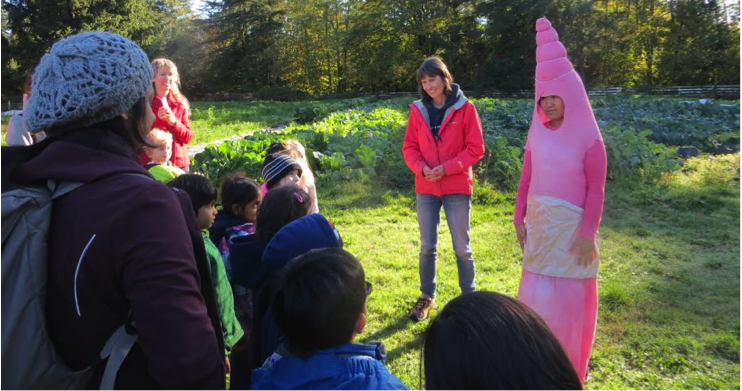
With a deep love and appreciation for earthworms, I was finally given the opportunity to be one for a day (or two) in front of a kindergarten class. It was a good day.
At the very start of the internship I was excited to apply most of the things I learned in school to my restoration project. In my head I thought, “FINALLY! I can do something I’m passionate about without the pressure of grades and possible failure! And with professionals, too – bonus!” (You can tell I haven’t really gotten over post-secondary schooling yet!) With Education though, I admit, I was unsure and slightly intimidated. I agreed to be an Environmental Education intern even though I had no prior experience with children. But the two A Rocha educators, Shai and Ruth, encouraged me and reassured me that I would do well since I already had a passion for the environment. The challenge then was sharing that same passion and inspiring children to explore, learn, and wonder about God’s creation.
Throughout my time as an intern I felt great freedom to explore ideas and values. Every question was met with understanding and a well-thought out answer. I was able to discover that up to that point I had operated under pressure (pressure I put on myself) and it was not good for me. But at A Rocha I found myself getting more things done, such as the restoration project report, in a pace that I found comfortable with without needing to fall asleep in front of my laptop. Granted, there were still some deadlines, but Jesse Wildeman, my restoration project supervisor, always made sure that I wasn’t hurting my head over it. And surprisingly, even with the two programs, I always managed to do work and still be on schedule.
With Conservation Science, I was on familiar ground. I knew what needed to be done, and I was confident that I would be able to do it. With Environmental Education though, it was uncharted territory. There were many moments of joy, such as when a little pre-schooler was willing to fully touch a banana slug and keep one on her hand (much to her mother’s surprise) during one of our forest walks, to frustrating times such as when a little boy knowingly trampled on a group of mushrooms on the forest floor as soon as I pointed it out to him. But from the inspiring, joyful, and sometimes frustrating sessions, I came to appreciate the true value of education, and how planting the seeds of wonder in each child is part of the learning and teaching process. Yes, it may be seen as silly, sometimes even futile, to think that a child’s perspective on nature can change in just one day. But I am willing to hope that somehow, with the seeds planted here in A Rocha, someone will help water and help it grow along the way.
In reflecting on my internships, I think the most important thing I experienced was a deeper love and appreciation for conservation, restoration, education, and God’s creation altogether. I didn’t think it was possible, but I was able to deepen my connection with creation as well as actively engage others in it. What could be more rewarding than that?
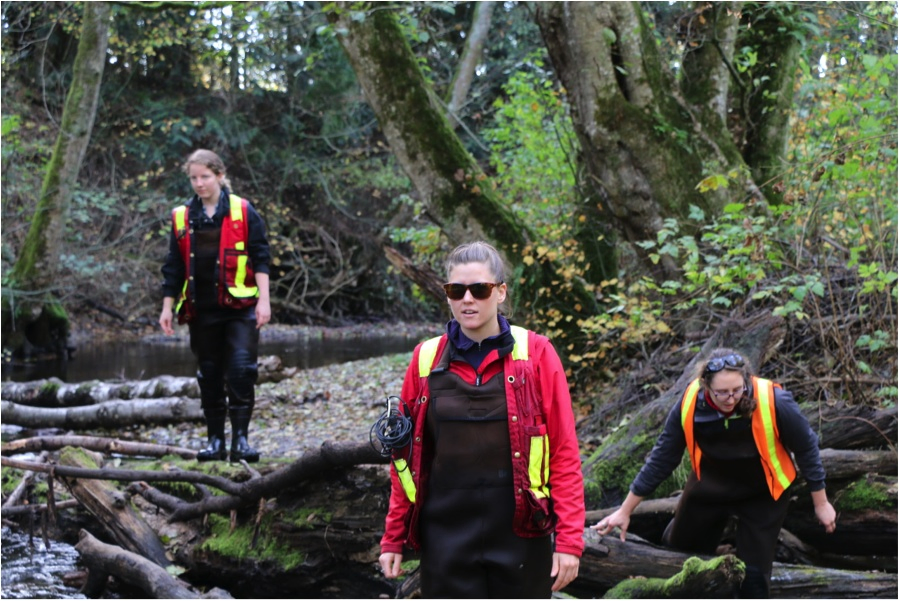
Let Children Walk With Nature
During my Conservation Science internship with A Rocha this past fall, we spent time in the field, surveying for Salish sucker and spawning salmon in the Little Campbell River, as well as monitoring biodiversity plots in the forest on site at Brooksdale and taking water quality measurements. We’ve also spent time in the office, report writing and working with our field data. Though both spaces, office and field, are integral to the scientific process, I find my time in nature to be very rich and full of new life lessons every day.
There are many marvelous and mysterious aspects to life. It is resilient, yet simultaneously tender and fragile. Not one organism functions independently of the system. It is in this complex community of inter-related beings, like cogs in a wheel, perfectly designed to fulfill their intended purpose — that life might flourish. I reflect on death as I grow in my understanding of functioning ecosystems, my place within them and the way that life cycles into death and decay bringing about new life.
John Muir writes, “Let children walk with Nature, let them see the beautiful blending and communions of death and life, their joyous inseparable unity, as taught in woods and meadows, plains and mountains and streams of our blessed star, and they will learn that death is stingless indeed and as beautiful as life, and that the grave has no victory, for it never fights. All is divine harmony.”
As I cherish moments spent kneeling on the damp forest floor observing the intricacies of fungal fruiting bodies, or as I’ve held a dying Coho spawner on the river’s edge, I see a new beauty. Harmony: I can’t think of a better word to describe what I see in nature. It is hard to witness death and decay, and even to embrace tension in human relationships. Though, just as the natural world holds in balance the needs of all its beings, we learn to harmonize with one another. We learn to give and take, to sacrifice in times of plenty for the prosperity of our neighbour in need. And whenever we can, we return to the soil, humbly grounding ourselves. For a seed to give birth to life, first it must die.


